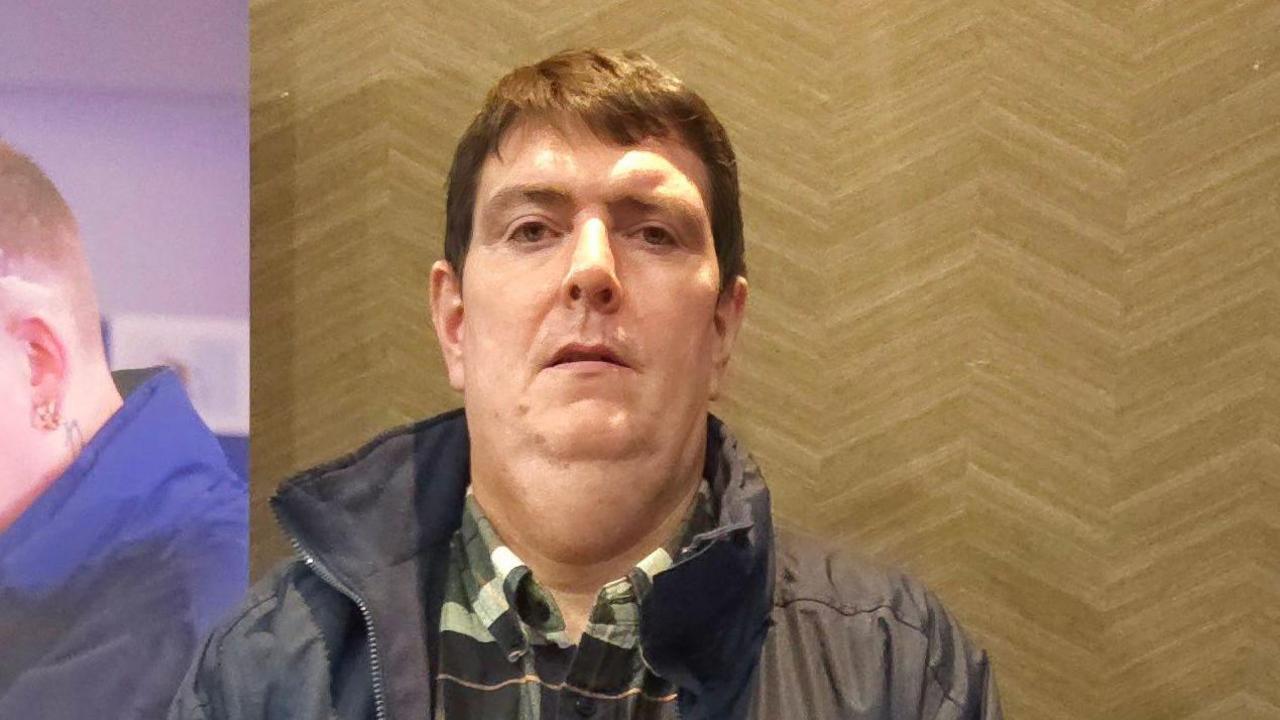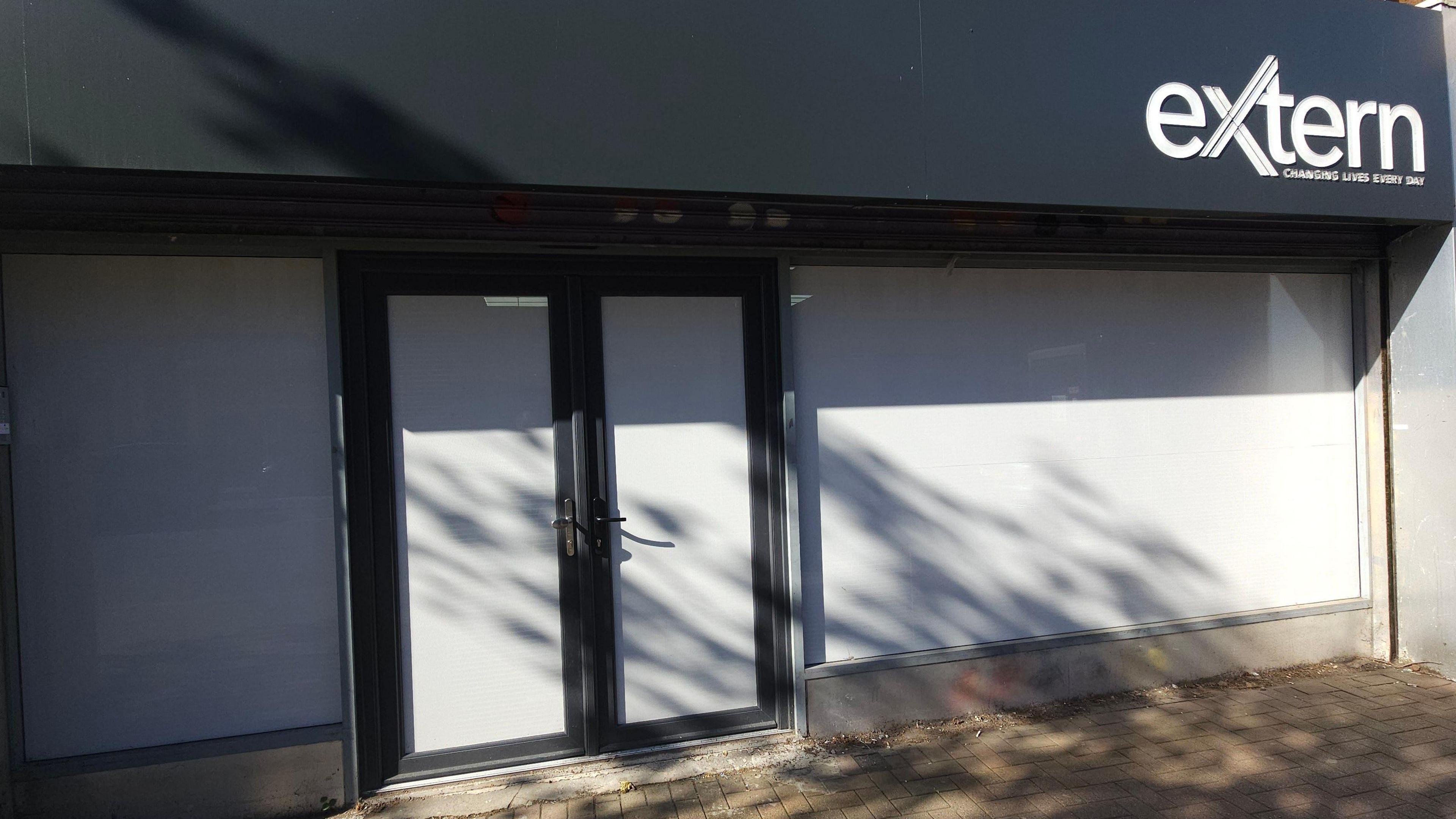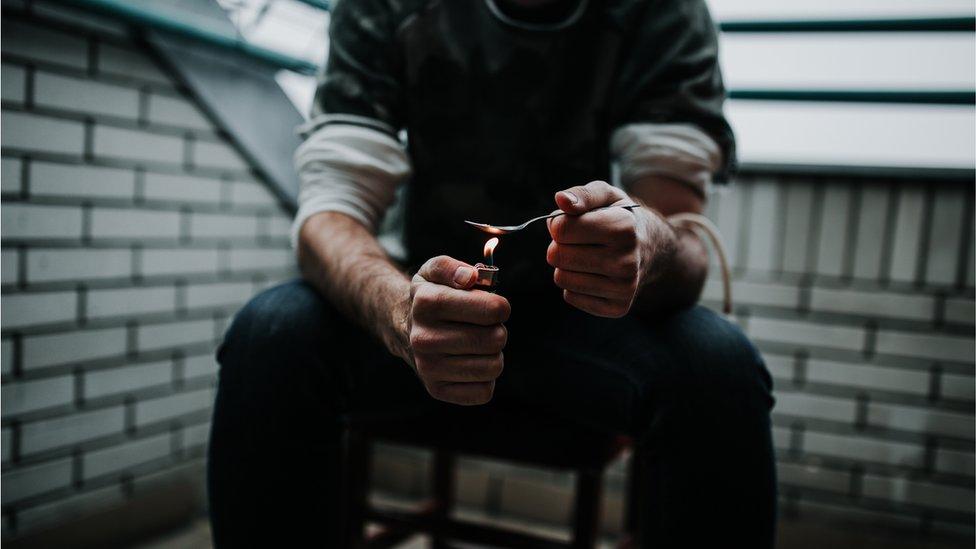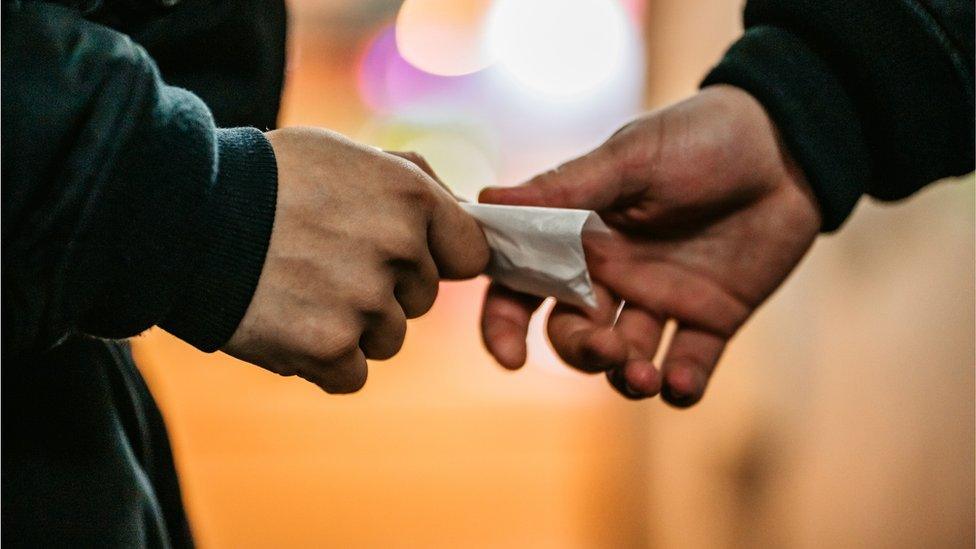'Alarming increase' in number of people injecting drugs

Extern’s manager of harm reduction services Iain Cameron thinks drug use and injecting drug use in Belfast is increasing
- Published
A new enhanced drug needle exchange has opened in Belfast City Centre.
The service is operated by the charity Extern, which says there is an alarming increase in the number of people injecting drugs in Northern Ireland.
In 2023, a total of 31,851 transactions were made by the Needle and Syringe Exchange Service across Northern Ireland.
Drug use and injecting drug use in Belfast is increasing, according to Extern’s manager of harm reduction services Iain Cameron.
The new needle exchange will allow people who inject drugs such as heroin or cocaine to safely dispose used needles, receive clean needles and access health services.
Mr Cameron said the service was vitally important and would allow the charity to provide extra services and support to people using drugs.
In the past six months the service has seen an increase in cocaine injecting which Cameron describes as "incredibly worrying".
"We’ve seen cocaine use increase dramatically. Cocaine has become more available. It’s much cheaper and the purity levels have increased," he said.
"Someone who is injecting cocaine for example may inject 25 times a day."
According to the UK government, reported recent injection of cocaine in Northern Ireland surged from 5.9% in 2018 to 84% in 2022.

Extern's aim is to allow those who inject drugs like heroin or cocaine to safely dispose used needles, receive clean needles and access health services
"There are very few families in Northern Ireland who have not been impacted by drugs and alcohol," Mr Cameron said.
"Unfortunately the shame and the stigma stops people from talking about that publicly or even seeking help.
“This is about people’s lives. Everyone we are talking about is someone’s son, someone’s daughter."
Mr Cameron described part of the role of the needle exchange as engaging with and building a rapport with people.
He said it was important to get people at an early point of their drug use so the service can provide help and support and refer them to services before they acquire any bloodborne viruses or other injecting-related injuries.
Mr Cameron said there was a wider issue in terms of the cost of drug use on the healthcare system.
"Every penny spent on harm reduction services like this saves money further on down the line in our A&E services. Early intervention and education is key," he said.
'Life-saving intervention'
The regional lead for drugs and alcohol at the Public Health Agency, Kevin Bailey, said the new facility would help deliver "life-saving" intervention and support.
“Individuals who are using substances, who are often ostracized from society face a lot of stigma," he said.
"When they come into this facility they can be kept under observation if there is an issue around their health and wellbeing.
"If they have wounds from IV drug use they can get their wounds seen to and taken care of."
He stressed people could not use illegal drugs inside the building as it is not an overdose prevention facility.
"If it ever does become legal, like it has done in Scotland and in the south [Republic of Ireland] we will watch those projects to consider how they are impacting the local population and we will learn from that," he said.
Related topics
- Published2 March 2023

- Published28 February 2024
